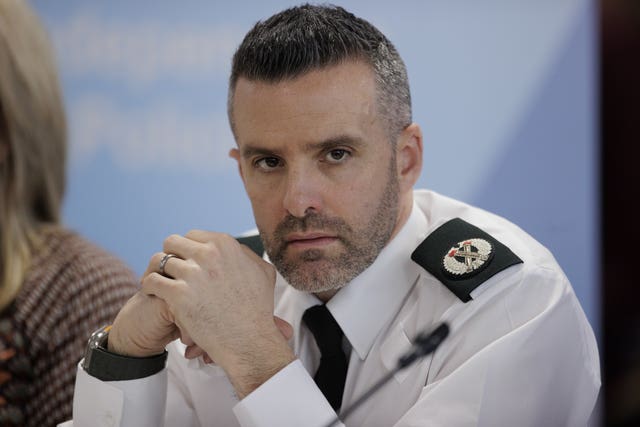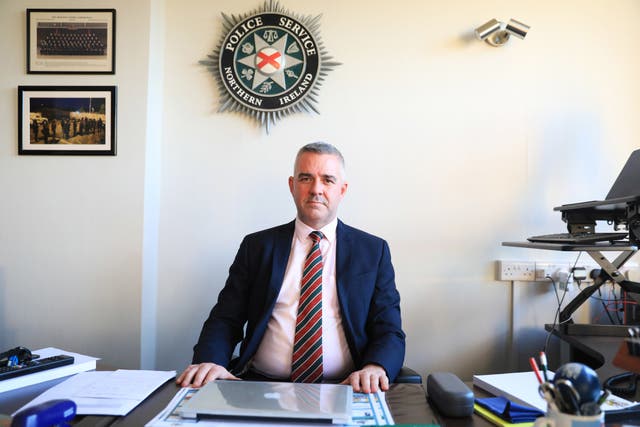Almost 5,000 apply to join Police Service of Northern Ireland
The figures indicate a last-minute surge of applicants for the latest recruitment drive.

Almost 5,000 people have applied to join the Police Service of Northern Ireland.
The 4,822 total applications to become a student officer indicates a last-minute surge after Chief Constable Jon Boutcher said around 3,500 had applied earlier this month.
In addition, a recruitment campaign for call handlers has attracted 587 applications, the PSNI said on Tuesday.
PSNI officer numbers are currently around 6,300, with the chief constable describing this as “below where they need to be”, and aiming to boost numbers to 7,000.
Student officers start on a salary of around £34,000 which includes the Northern Ireland Transitional Allowance, which is currently £4,110 per annum.
Deputy Chief Constable Bobby Singleton said applications are “slightly down for student officers”, but noted a “very competitive job market” with the unemployment rate at 1.9%
He said each of the applicants will go through a “rigorous but worthwhile process, which has been developed to ensure that the very best candidates will go forward to be offered a place on the training programme”.
“It is really positive to see that in the three week application window such a large number of people have expressed an interest in stepping up to serve our communities and keep people safe by becoming a police officer or call handler with the Police Service of Northern Ireland,” he said.
“Whilst applications are slightly down for student officers on the previous campaign, they have risen for the call handler position.”
He said police are competing for recruitments across a variety of professions, and said other blue light services are also feeling the impact of this.

“Throughout the recruitment campaigns, in addition to advertising across traditional social and digital media, we also held a number of outreach and engagement events across Northern Ireland to meet and interact with people who wanted to know about a career in policing,” he said.
“We met with so many brilliant and dedicated people from all backgrounds and walks of life whose talents will undoubtedly enhance our Police Service and improve the lives of the communities we serve.
“Being a police officer is not the career for everyone, but for those of us for whom it is truly a vocation, it is an exciting, challenging and varied one where you can literally change lives for the better because of the positive difference you make for people and communities.”
The Police Federation, which represents rank and file officers, welcomed “higher-than-expected” numbers.
However, federation chairman Liam Kelly said there remains “some way to go to address real or perceived obstacles to getting more from a Catholic background to apply”.

“I welcome this level of response. It shows there is extensive interest in a police career while also pointing to work that is continuing to attract increased numbers from a Catholic background,” he said.
“In this batch, we have almost 29% of applications coming from the Catholic community.
“I wish this figure was higher to better reflect our wider community.
“The outreach work that was done was and remains extensive.
“The plain and simple truth is that despite best efforts, Catholics are still put off applying to become student officers for a number of reasons but especially because of threat levels posed by dissident republicans.
“The sacrifices some Catholic officers have to make are greater than those faced by their colleagues.
“As a society, we have to address those barriers and not point the finger of blame at a service that is trying its best to attract applicants that best reflect our wider community.”





